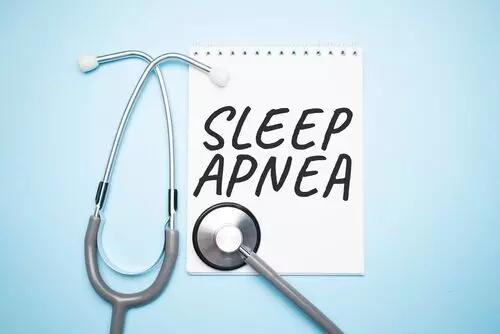Cardio-oncology patients may have a high prevalence of sleep apnea and risk of CHF

Cardio-Oncology Patients may have high prevalence of sleep apnea and risk of CHF suggests a new study published in the American College of Cardiology.
Sleep apnea is prevalent among patients at higher risk for developing congestive heart failure (CHF) following cancer treatment and could be used as a risk factor to identify patients who would benefit from earlier treatment, according to a study being presented at ACC’s Advancing the Cardiovascular Care of the Oncology Patient course. Obstructive sleep apnea (OSA), the focus of this study, has a prevalence of 48-52% among patients with CHF in the general population. To determine the prevalence of OSA in cardio-oncology patients, researchers administered the STOP-BANG questionnaire, a well-established screening tool for sleep apnea, among 218 cardio-oncology patients and 296 general cardiology patients. Data were collected on traditional risk factors, STOP-BANG scores and history of sleep for both groups. Baseline echocardiogram left ventricular ejection fraction (LVEF)and Global Longitudinal LV Strain (GLS) results were measured for the cardio-oncology population. Other research has shown that LVEF and GLS can predict early cancer-therapy-related cardiomyopathy, and OSA is also linked to LV dysfunction, CHF and abnormal LV-GLS. “Echocardiogram has evolved to be a useful tool to detect and therefore treat cardiomyopathy early in patients with sleep apnea and in the cardio-oncology population, so we also wanted to see if there are shared echo markers that identify patients who are at greater risk as they start their journey to treat their cancer,” says Mini K. Das, MD, FACC, medical director of the cardio-oncology program at Baptist Health in Louisville, KY, and the study’s primary author. Results showed that the incidence of sleep apnea was 39% in the cardio-oncology group and 54% in the general cardiology group. The researchers note that individuals with untreated sleep apnea and those at higher risk for sleep apnea have abnormal baseline LV strain, a common echo parameter linked to adverse cardiovascular events. “Identifying these individuals may allow early intervention in a risk factor clearly associated with HF now recognized to affect cancer therapy and survivorship,” Das says. Notably, the study showed that the prevalence of sleep apnea in the cardio-oncology group was equal to or greater than other traditional risk factors used in current risk factor profile algorithms and that LV GLS was more abnormal in patients with untreated sleep apnea or a high STOP-BANG score. “Sleep apnea should be incorporated into current risk algorithms and a larger study is needed to evaluate the impact of sleep apnea in this high-risk population. We feel that sleep apnea assessment must be a part of routine risk assessment for patients undergoing cancer therapeutics,” says Das. Advancing the Cardiovascular Care of the Oncology Patient, being held Feb. 9 to 11, is an interdisciplinary course that highlights emerging strategies and best practices for managing the heart health of cancer patients.
Reference:
Sleep Apnea a Risk Factor For Heart Failure From Cancer Therapy. Feb 09, 2024. ACC News Story
Keywords:
Cardio-Oncology Patients, high prevalence, sleep apnea, risk of CHF



